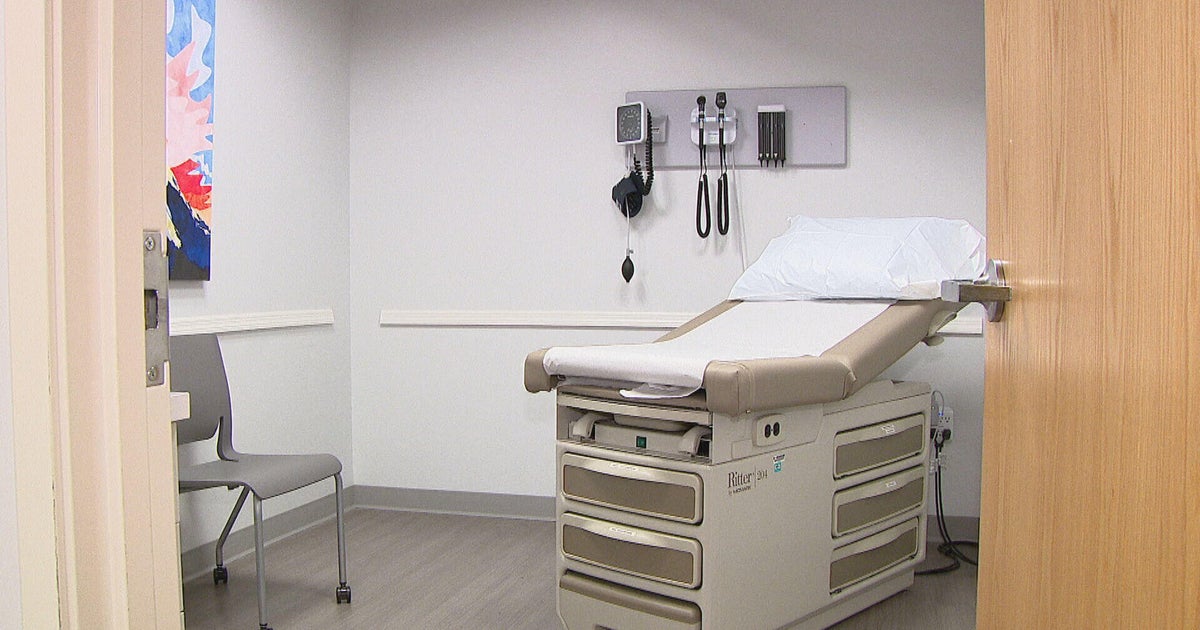Illinois children with complex medical needs receive fraction of care they qualify for, records show
CHICAGO (CBS) – More than 1,000 Illinois children need some extra help eating or even breathing, or what the state considers "medically complex" and "technology dependent."
Illinois is federally required to provide these kids and their families with resources, but a CBS 2 investigation found the state is routinely falling short.
Sarah loves to play. Her bedroom was filled with small things that bring her joy and big pieces of equipment that keep her stable.
"She can't walk. She can't talk. She can't sit independently," said Amy Weston, Sarah's mother.
The 7-year-old girl also needs help breathing. She has cords to monitor her heart rate and uses a feeding pump.
It's just some of Sarah's medical supplies. They're all necessary after she had a traumatic brain injury as a baby before the Westons adopted her.
"She needs 24/7 supervision," Weston said. "I always say it's like having a newborn but with super high stakes."
The rest of the family does their best to help care for Sarah, but Amy is left with most daily tasks, and she's burned out.
"It's a privilege and an honor to take care of Sarah, and I wouldn't trade it for the whole world, but even the state says it's not a one-man job," Weston said.
She referenced the Illinois Department of Healthcare and Family Services, which said Sarah is qualified for in-home shift nursing. She was approved to receive 112 hours per week but only has 44 hours covered, less than 40%.
It's a gap the Johnsburg mother is forced to fill.
"It's not sustainable," she said. "I mean, definitely, your own self-care suffers. Your mental health suffers. Your sleep suffers. Your whole family suffers."
Someone else who knows the feeling is an Elk Grove Village father who spends every night on a twin bed to monitor his daughter's breathing. The state routinely hasn't been able to fulfill more than 20% of the hours allotted to the family, so dad is the de facto night nurse.
The Rizos from west suburban Montgomery were also exhausted.
"Without somebody monitoring him 24/7, it could be drastic," said Carly Rizo about her son.
Despite being cleared by doctors, 1-year-old Nicholas Rizo was forced to stay in the hospital because the state couldn't find him enough home care nurses. CBS 2 first told their story last June.
"Two months almost that he's been able to go home," said Eric, Nicholas' dad.
Four months after CBS 2 spoke to the Rizos, Nicholas was happy at home with his family. His parents, on the other hand, said it's been a little rough because Nicholas was getting nowhere near the state's allowance of 126 hours of home care a week. Without a night nurse, one of his parents is forced to stay awake until 2:30 a.m., and then an alarm goes off for them to swap.
Records obtained by CBS 2 revealed the state approved about $306 million from September 2022 to September 2023 of home care coverage. But only $115 million, less than 40%, was used for a variety of reasons.
The Westons and other families said they've grown accustomed to their needs not being met.
Reporter: "How often are you asking for additional nursing help?"
Weston: "At the beginning, a lot. You kind of get to the point where, like, I'm just not going to get any help, so this is just my life."
A lack of home care nursing is not a new problem. In fact, a group of parents raising "medically complex" children sued the state over the issue in 2015.
On Friday night at 10 p.m., CBS 2 will look into a new state solution and ask if it's really going to help exhausted families like the Westons.
CBS 2 never heard back on a request for a sit-down interview with the new director of the Illinois Department of Healthcare and Family Services, Elizabeth Whitehorn.
In a statement, a department spokesperson said, "The Department is deeply committed to serving the Medicaid population. And while labor market challenges during the pandemic have created strain across the health care system, the Department is continuing to identify solutions to address ongoing capacity issues, including implementing recent rate increases, among other improvements."










